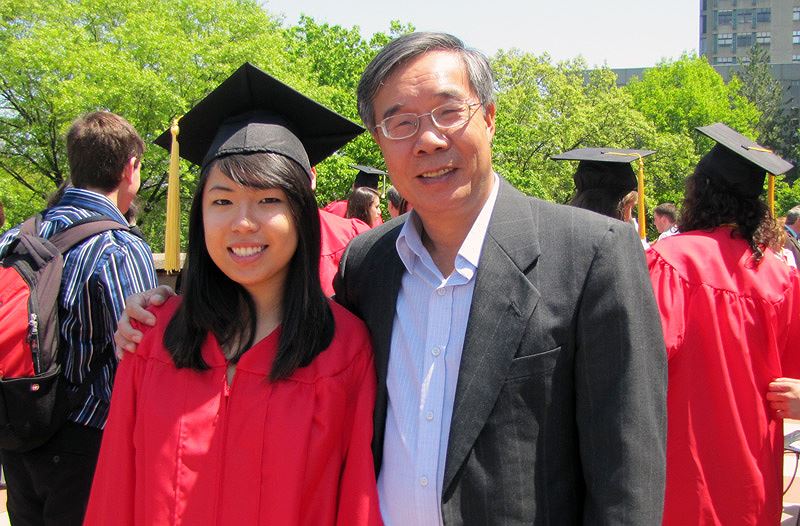
Regarding the issue of exams and graduation recognition, as well as university admissions in 2014, the Vietnam Education Online Newspaper interviewed Mr. Tran Duc Canh, who previously held the position of Director of the Training and Human Resource Development Program for the State of Massachusetts (USA) and was a member of the Intercollegiate Council of the Northeast Massachusetts University.
This interview serves as a contribution to the current policy of exam reform. The content reflects Mr. Tran Duc Canh’s personal views.
Recently, the Ministry of Education and Training (MOET) introduced a draft plan for exams and graduation recognition. After considering public opinion, it seems that the option of four exam subjects (two mandatory: Mathematics and Literature, and two elective subjects) has been suggested, where Foreign Language is optional, and the 20% exemption may not be applied. What is your opinion on this plan from the MOET?
Mr. Tran Duc Canh: As I understand it, the Prime Minister has concluded the plan to reform the high school graduation exam and university admissions. The MOET’s decision not to apply the 20% graduation exam exemption for high school students in 2014 is a positive development.
If students are excellent, they must prove themselves not only through classroom performance but also by taking the exam like other students. Exempting students from the exam would involve complex factors such as regional and preferential treatment, making it difficult to evaluate fairly. Therefore, it will be easier for evaluators to distinguish and assess students.

Mr. Tran Duc Canh, former Director of the Training and Human Resource Development Program for the State of Massachusetts (USA) and a member of the Intercollegiate Council of the Northeast Massachusetts University.
Thus, with this option, the number of exam subjects is reduced from six to four, and some suggest that whether there are two or no subjects at all, it is reasonable. In your opinion, does reducing the number of exam subjects achieve the goal of comprehensively assessing students’ abilities as mentioned in Resolution 29?The issue is not about whether there are four or six subjects, including mandatory and elective ones; the way the exam is conducted is the problem. I hope that the 2014 exam organization is just a temporary solution and a preparation for a more effective long-term exam plan. The current exam method still tests knowledge through rote learning and does not assess much in terms of abilities.
I believe there should be a different, more advanced, and scientific model for assessing students’ knowledge and abilities without wasting too much time and effort for everyone involved. An example would be a university entrance exam similar to the Scholastic Aptitude Test (SAT I and II) in the US.
Three main subjects: Reading, Writing, and Mathematics in about four hours, including 180-200 multiple-choice questions and a short essay. Except for the essay, the entire exam is computer-graded. The exam is structured into sections, with questions ranging from easy to difficult. By looking at the scores and correct/incorrect answers, the reader can understand the student’s basic academic abilities.
Some universities with higher requirements may require students to take 2-3 elective subjects related to their desired field of study, with each subject having an hour-long test consisting of 50 to 90 multiple-choice questions.
Thus, the maximum exam time is one day, and the exam process is streamlined, efficiently assessing both basic academic abilities and talents. If students are not satisfied with their exam results, they can register to retake the exam once more.
Universities can use the exam results for admissions based on their own criteria and requirements.
With the identification of specific exam subjects like this, are you concerned about the possibility of students focusing more on some subjects while neglecting others, leading to the devaluation of certain subjects and teachers?
If such a situation arises, it is likely unique to Vietnam, where the focus on exams leads to such outcomes. The purpose of education is to equip students with knowledge and motivate learners, and if teachers are passionate and responsible in their work, they will not have such an attitude towards teaching and learning.
Education must be built on the understanding that families invest money, and students invest a lot of effort and time in their studies. This is an “opportunity cost” and must be returned with its true value.
In a competitive environment, high productivity and efficiency are always required in every position, and those with poor abilities cannot last long, no matter the form. Pragmatic people do not easily spend their effort, money, and time on something they perceive as illusory.
In your opinion, where does a student’s ability lie when we only rely on a few graduation exam subjects each year? Is it necessary to include additional skills in organizing exams?
If the university admission model is clearly defined for the future, then the issue of high school graduation exams, or the combination of high school and university exams, means that exam scores are no longer a decisive factor in university admissions.
Universities can set appropriate admissions criteria, including the demonstration of other skills and talents, without necessarily going through an exam. Schools will strive to select students with the highest potential for success, and in return, excellent students will have more opportunities to choose.
It seems that before embarking on a comprehensive and fundamental education reform, the Ministry of Education and Training must “experiment” with various exam and recognition methods. Do you see this as a sign of responsiveness or a manifestation of confusion?
I think it is a bit of both, and it is understandable because the MOET itself cannot foresee or control all issues. Our approach has often been “throwing stones to find the way,” or in other words, “pilot testing.”
The current education issues are urgent, and I believe the MOET should deeply study reform models from advanced countries and boldly propose reforms with an appropriate implementation roadmap. Excessive “experimentation” should be avoided as it only wastes opportunities and complicates matters further.
If you had the authority to outline a roadmap for exams and graduation recognition, and further for university and college admissions, how would you do it?
My proposal is to replace the current learning, examination, and admission process with a different model.
There should be a requirement framework for high school; if students meet it, they should be awarded a high school diploma without needing to take a graduation exam. We should restructure the high school curriculum, and even the lower secondary and primary levels, to make them consistent and aligned.
In high school (grades 10, 11, 12), each semester, students should study 5-6 subjects. Over three years, they must complete 30-36 subjects, including Mathematics, Physics, Chemistry, Literature, basic subjects, and elective subjects… learning in a credit-based system, where students complete subjects one by one. If they do not pass a subject, they must retake it.
During a semester, students spend about 18 hours per week in class, with a lot of time dedicated to self-study, reading, research, and assignments. Each subject may have 3-5 or more tests per semester, including in-class tests, homework, essays, mid-term exams, and final exams.
Although the curriculum is not overly intense or heavy, it requires students to study, prepare thoroughly, and continuously. This method of learning leads to more effective absorption of knowledge.
This approach gradually addresses the current issue where students focus on a single exam for a long period, only to forget almost everything afterward.
Under this model, a graduation rate of 90% or 95% is not the issue, as long as the teaching and learning program is properly implemented. After all, high school education should ensure that most students have the opportunity to achieve the basic level of knowledge required for a high school graduate.
Universities and colleges will use high school transcripts for admissions, including the average annual grade, the average grade over three years of high school, grades in key and elective subjects, along with university exam scores and other requirements.
What do you imagine our education system will look like by 2020, when our country becomes an industrialized nation following a modern direction? What should the future of high school graduation and university, college admissions look like?
Currently, we have only just begun addressing the issue of high school graduation exams and university/college admissions. As mentioned earlier, I think we should abolish the high school graduation exam and organize a streamlined, scientific, and effective university entrance exam that assesses both knowledge and abilities.
Regarding industrial development in a modern direction, from now until 2020, we must quickly restructure the education and training program to align with economic and social development, with the market playing a leading role.
The human resource development plan (HRDP) is the key to economic and social development, with education and training at the center. However, to build a practical and effective HRDP within the next 5-10 years, and 25 years, a clearly defined and specific economic-social development plan must be constructed, serving as the guiding framework for building and training human resources.
Thank you very much!
Source: http://giaoduc.net.vn/Giao-duc-24h/Khong-nen-thu-nghiem-nhieu-vi-chi-lam-mat-thoi-co-va-roi-them-post140334.gd